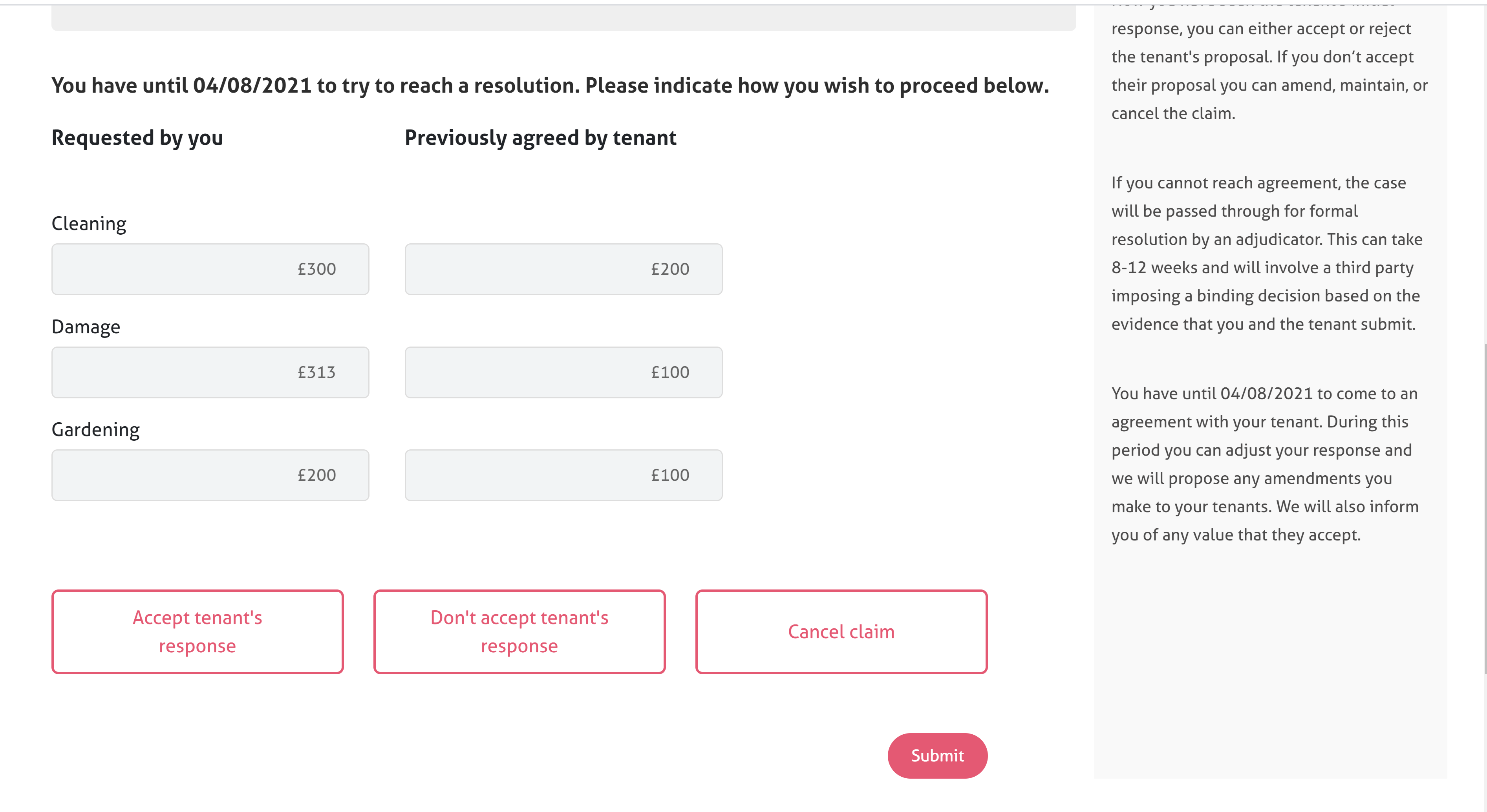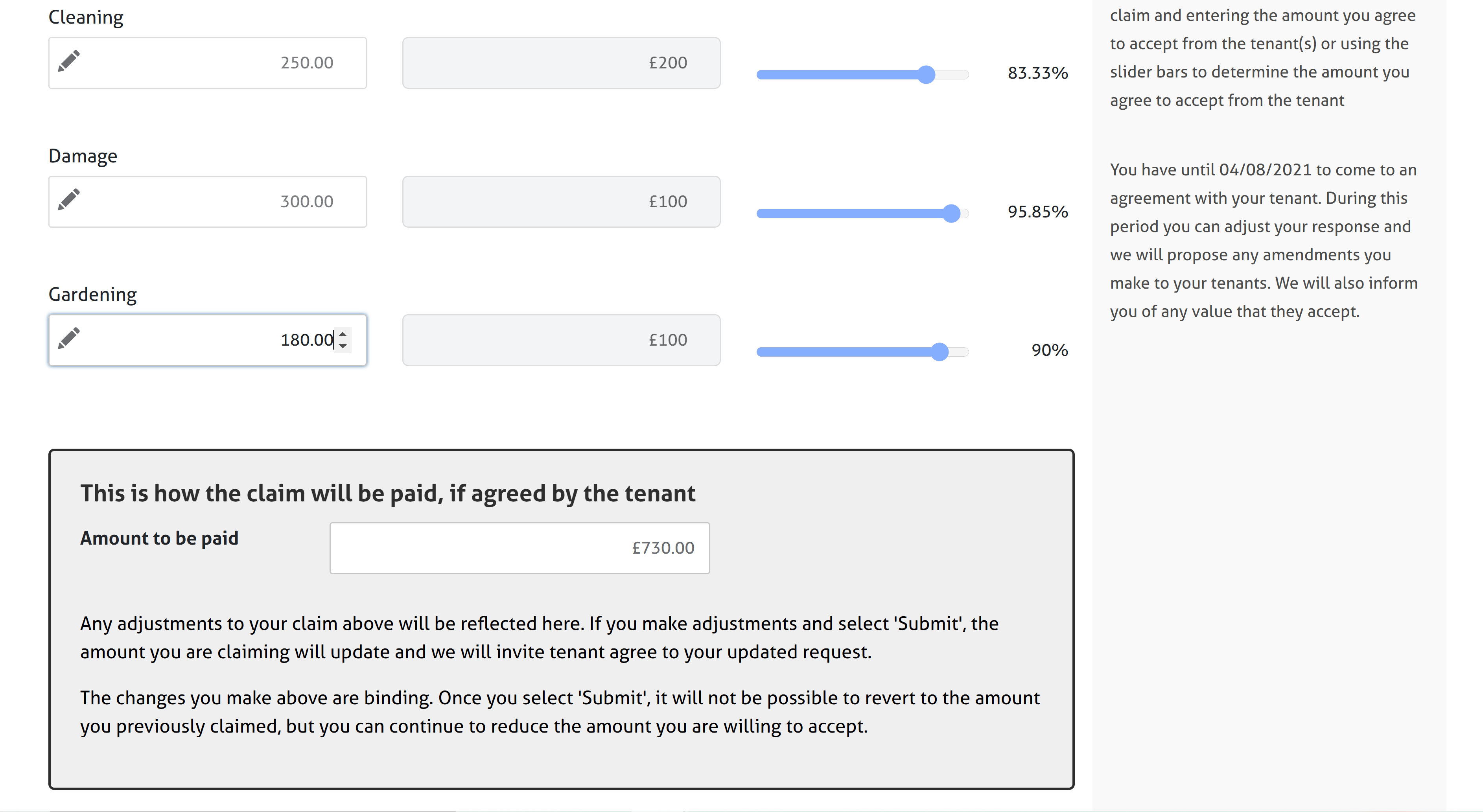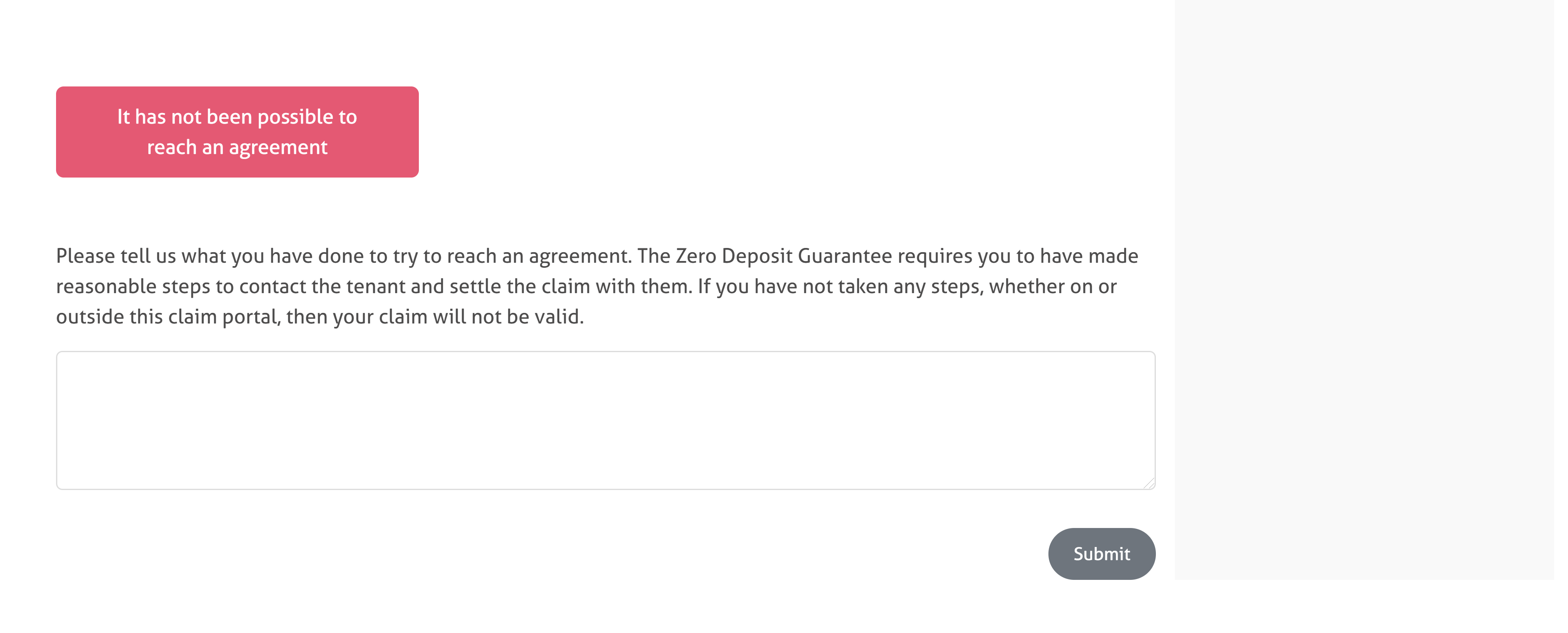Attempting to Reach An Agreement with the Tenant(s)
Self-Resolution
Zero Deposit
Last Update 4 years ago
During this stage, you and the lead tenant can exchange offers to attempt to resolve the claim without the need for formal adjudication. There are 5 working days to do this, with potential for a further 5 working days if negotiations are still ongoing or have not yet been attempted.
You will see the tenant’s initial response to the claim and can decide whether to accept it or make a counter offer. The tenant can change their initial response or, when you respond, they can decide whether to accept your response or make a different counter offer.
A large number of cases are resolved at this stage. It is much quicker than formal adjudication, doesn’t require full evidence submission from both parties, and both you and the tenant have certainty about the result. You must engage in this stage for the claim to progress.
1. Entering Negotiations
Once the tenant has responded to the claim, we will get in touch via email. This will show as from Zero Deposit on [email protected], with the subject Decision Required - Tenant Response to Claim. Click on the Your Claim button in the email to log into your claim account. This will bring you to the claim summary. Click Continue claim journey in the top left of the screen.
You can now see the tenant’s response. The total claim value you submitted is next to Amount requested by agent/landlord and the total amount that the tenant has agreed is by of which is agreed by tenant. You can also see the amount of the claim for each part of the claim under the headers below.
Once you have reviewed the tenant’s response, then you need to choose whether to:
- Accept the tenant’s offer;
- Decline the tenant’s offer; or
- Cancel the claim, if you no longer wish to make a claim.
When you have selected your chosen option, press Submit to progress

2(a) If you accept the tenant’s response
If you accept the tenant’s offer, then what we do depends on whether you provided bank details when you raised a claim:
- If you did, then we will make payment immediately. It should arrive in your account within 5 working days, depending on your bank.
- If you did not, then let us know them as soon as possible. You can do that by emailing [email protected] or calling us on 0333 200 2542. As soon as we’ve got them, we’ll make payment.
We will also email you to confirm the agreement on the claim and, if we don't have bank details, request them (Email subject is Claim Agreed - Confirm Bank Details for Payout).
2(b) If you do not accept the tenant’s response
Reaching an agreement is better for everyone, so you should consider whether you are prepared to reduce the claim, based on the tenant’s response. If you can come to an agreed position, the claim is resolved more quickly (evidence gathering, review of that evidence, and adjudication can take up to 7 weeks), you avoid submitting a full evidence set for adjudication, and the claim value is known and agreed, rather than defined by The Dispute Service.
You can amend the claim by changing the value for any element of your claim under the heading Requested by you or using the blue slider next to it. Once you have selected the values you are willing to accept, press Submit.

We will then share your response with the tenant and let you know how they respond:
- If they agree to the new claim value, then we will seek to make payment, as described here.
- If they disagree, we will let you know their new proposal.
If you want the negotiation to end, then you can select It has not been possible to reach an agreement instead of amending your claim. This does not bring the negotiation phase to an end, as we leave it open for the tenant to accept your claim or for you to change your position. Therefore we recommend continuing with negotiations, even if that is simply a re-statement of the original claim.

2(c) If you cancel your claim
If you cancel your claim, we will notify the tenant and send you an email confirming your decision.
3. If an agreement can't be reached
If there is no agreement by the end of self-resolution, we will ask you for the evidence that supports your claim. Guidance on that is available in the Providing Evidence to Support the Claim section of these pages.

